Thalassaemia is the name given to a group of inherited blood conditions. People with
these conditions produce either no, or too little, haemoglobin. This can lead to health
problems, as haemoglobin is used by red blood cells to carry oxygen around the
body.
Thalassaemia can have a significant impact on lives. It can result in anaemia,
leading to fatigue, poor growth and, in severe cases, lifelong dependence on blood
transfusions, sometimes as often as every 2-4 weeks.
“The first thing I’d say is having a child that needs regular blood transfusions is really
hard,” says Reena, who lives in Medway. “It took me a while to come to terms with
emotionally, not to mention the mental toll on Jovan and all of us in taking him to
appointments so often.”
Blood transfusions are a two-day process for Jovan and his family, requiring them to
attend hospital on a Sunday for blood tests and Monday for the blood transfusion.
Reena says: “On the day of the blood transfusion, we’re normally there for about
8:30am and we finish by about 3pm on a good day. It’s hard because my husband
and I work full-time. Managing his condition around work has been a challenge.”
Although anyone can have Thalassaemia, it's much more common in people from
South Asian, Southeast Asian, Mediterranean and Middle Eastern backgrounds.
There are around 2,300 people with Thalassaemia in the UK, with an estimated 800
people with the severe form of the condition relying on regular blood transfusions. In
the UK, the largest groups affected are of Pakistani, Indian and Bangladeshi
ethnicity.
How do you get Thalassaemia?
Thalassaemia can only be passed from parents to children through genes. Around
200,000 people in England carry the gene for Thalassaemia.
Having the Thalassaemia gene (not the condition) will not generally cause you any
health problems, but you’re at risk of having children or grandchildren who either
have Thalassaemia or carry the gene. It may also mean other members of your
biological family could be carriers too, such as parents, siblings, aunts, uncles and
cousins.
Dr Rossby Awadzi, a GP trainee and author of an NHS England blog on inherited
blood disorders, explains. “Genes are like family recipes. You get one copy from
your mum, one from your dad. And sometimes, those recipes carry differences from
the standard originals. If one parent hands you a slightly misspelt recipe for making
haemoglobin and the other does too, your body follows both. The result? Your
haemoglobin doesn’t work as expected, or at all.”
If both partners are carriers, there is a one in four (25%) chance their baby will have
Thalassaemia. There is a two in four (50%) chance the baby will carry the gene.
As a blood condition, Thalassaemia runs deep through generations.
Naseema, who is from Preston, has two sons. Like Reena, she had never heard of
Thalassaemia before. “I had never met anyone with Thalassaemia in my life,” she
says. “When I was pregnant with Yusuf, my eldest, we found out that my husband
and I were carriers of the trait.
“Both sets of our parents only had a vague memory of being told about
Thalassaemia, and over the years, this information was forgotten about or not
deemed important.”
How do I find out if I am a carrier of the Thalassaemia gene?
You can contact your GP practice or Sickle Cell and Thalassaemia Centre to ask if
they can provide the Thalassaemia blood test.
Reena says “Once Jovan was diagnosed, I encouraged my brothers and sisters to
get a blood test to see if they had it. It doesn’t get picked up in an ordinary blood test
so it’s important to specifically ask for a Thalassaemia blood test.”
Knowing if you’re a carrier as early as possible is important. It could affect your
family’s future health.
Naseema says, “It was only when I told my best friend about Thalassaemia that her
mum remembered her sister was a carrier. These conversations can help improve
lives.”
All pregnant women and newborn babies in England are offered a test for
Thalassaemia and other inherited conditions. But it is a good idea to know if you are
a carrier before you decide to have a baby.
Genetic counselling is also an option for those considering having children. For
Reena, this is one of the most important things you can do. She says: “If you do find
you carry the gene, at least you’ve got options available to you so you can make
informed choices, such as IVF where they can remove the defective genes.”
Encouraging family members who may be thinking of having children to get the
blood test or ask for genetic counselling may make a big difference to their
wellbeing.
Dr Rossby explains: “Knowing now is kinder than reacting later. Once pregnancy
begins, the clock ticks faster, emotions run deeper, and decisions become heavier.
Genetic counselling should clear up myths, give real options, and remind people that
knowledge is power, not punishment.”
Why giving blood is important to help people with Thalassaemia give?
Blood donations are vital in helping those who need regular transfusions. They
usually take 5-10 minutes and one blood donation can save 3 lives.
Donating blood is safe and the major religions in the UK support blood and organ
donation.
Naseema’s son has benefitted from 138 blood transfusions in his nine years. She
adds: “If there was a way I could single-handedly thank every single person who has
ever donated blood that Yusuf has received, I would. Your blood is literally the
reason why my son stayed alive for another three weeks.”
What can I do to help?
There are several ways you can help your family and people with Thalassaemia:
1. Give blood
Did you know that 3% of blood donors are from a South Asian background?
Thalassaemia patients who need regular blood transfusions need blood that is
closely matched to their own. Find out more and become a blood donor via
the NHS Give Blood app or at www.blood.co.uk
2. Get tested
Getting tested for the Thalassaemia trait will give you important knowledge
about your heritage and your family’s health. Contact your GP practice or
Sickle Cell and Thalassaemia Centre to see if they can offer free NHS testing
for the trait via a simple blood test.
3. Spread the word
Tell your family, friends about Thalassemia. Tell them that it’s important for all
ethnicities to give blood to save lives. Tell them that there is a free blood test
available, along with screening services for pregnant women and newborns.

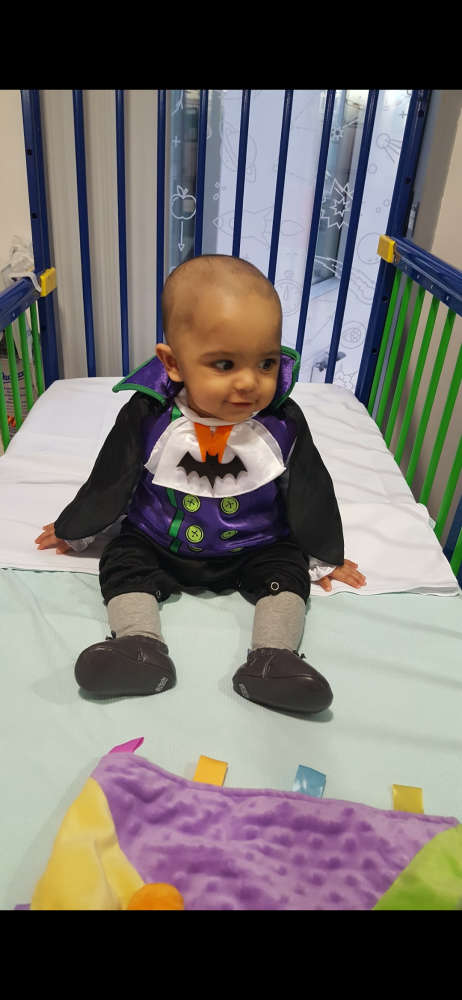




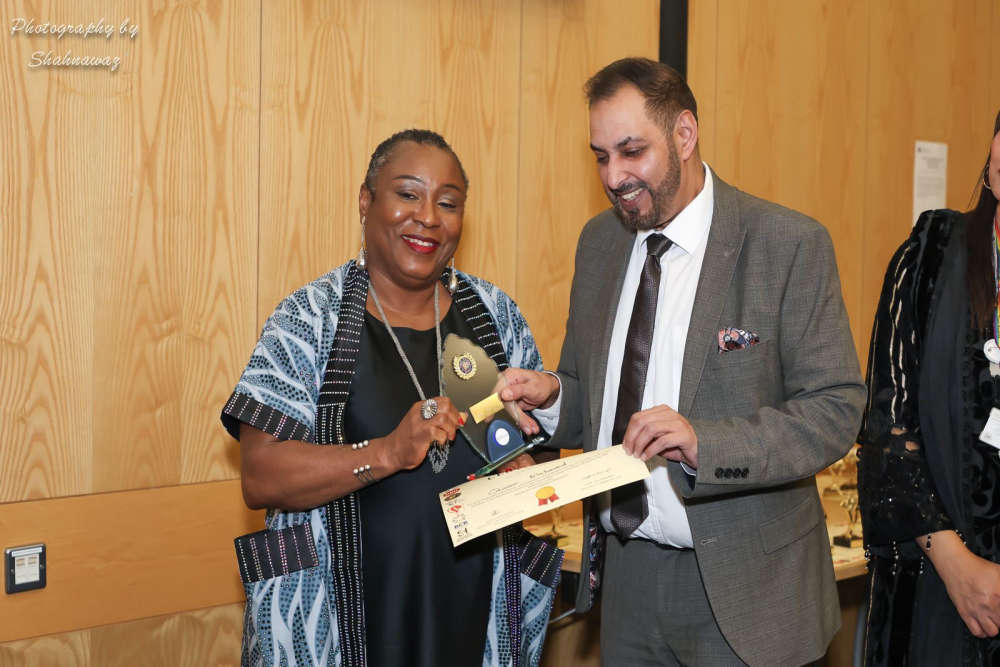

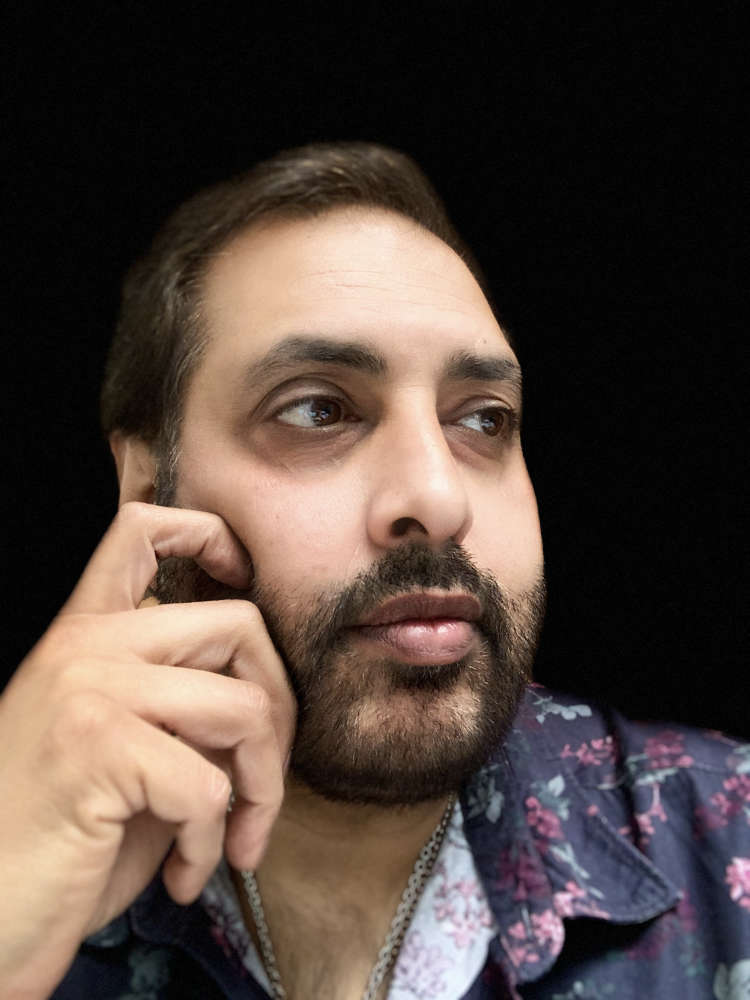
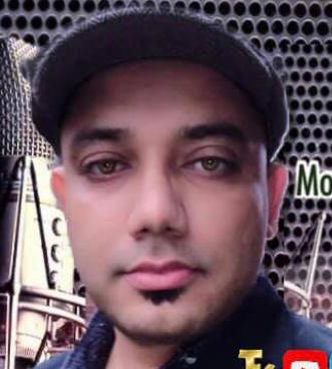
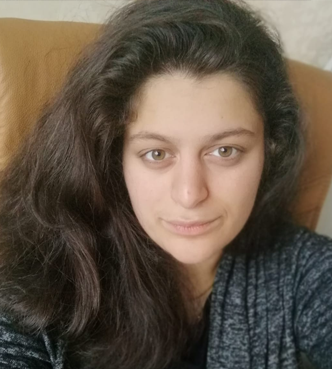
Comments
Add a comment